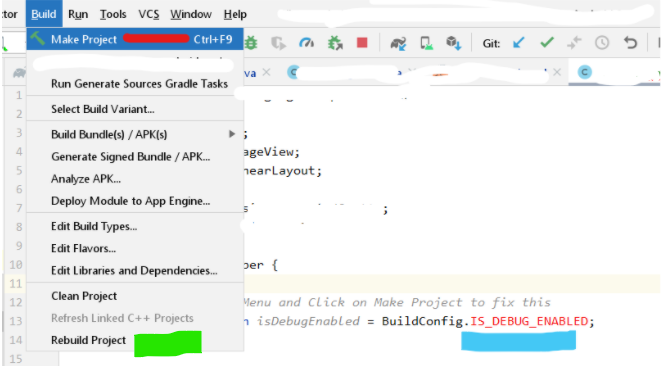Example using system properties, set in build.gradle, read from Java application (following up from question in comments):
Basically, using the test task in build.gradle, with test task method systemProperty setting a system property that's passed at runtime:
apply plugin: 'java'
group = 'example'
version = '0.0.1-SNAPSHOT'
repositories {
mavenCentral()
// mavenLocal()
// maven { url 'http://localhost/nexus/content/groups/public'; }
}
dependencies {
testCompile 'junit:junit:4.8.2'
compile 'ch.qos.logback:logback-classic:1.1.2'
}
test {
logger.info '==test=='
systemProperty 'MY-VAR1', 'VALUE-TEST'
}
And here's the rest of the sample code (which you could probably infer, but is included here anyway): it gets a system property MY-VAR1, expected at run-time to be set to VALUE-TEST:
package example;
import org.slf4j.Logger;
import org.slf4j.LoggerFactory;
public class HelloWorld {
static final Logger log=LoggerFactory.getLogger(HelloWorld.class);
public static void main(String args[]) {
log.info("entering main...");
final String val = System.getProperty("MY-VAR1", "UNSET (MAIN)");
System.out.println("(main.out) hello, world: " + val);
log.info("main.log) MY-VAR1=" + val);
}
}
Testcase: if MY-VAR is unset, the test should fail:
package example;
...
public class HelloWorldTest {
static final Logger log=LoggerFactory.getLogger(HelloWorldTest.class);
@Test public void testEnv() {
HelloWorld.main(new String[]{});
final String val = System.getProperty("MY-VAR1", "UNSET (TEST)");
System.out.println("(test.out) var1=" + val);
log.info("(test.log) MY-VAR1=" + val);
assertEquals("env MY-VAR1 set.", "VALUE-TEST", val);
}
}
Run (note: test is passing):
$ gradle cleanTest test
:cleanTest
:compileJava UP-TO-DATE
:processResources UP-TO-DATE
:classes UP-TO-DATE
:compileTestJava UP-TO-DATE
:processTestResources UP-TO-DATE
:testClasses UP-TO-DATE
:test
BUILD SUCCESSFUL
I've found that the tricky part is actually getting the output from gradle... So, logging is configured here (slf4j+logback), and the log file shows the results (alternatively, run gradle --info cleanTest test; there are also properties that get stdout to the console, but, you know, why):
$ cat app.log
INFO Test worker example.HelloWorld - entering main...
INFO Test worker example.HelloWorld - main.log) MY-VAR1=VALUE-TEST
INFO Test worker example.HelloWorldTest - (test.log) MY-VAR1=VALUE-TEST
If you comment out "systemProperty..." (which, btw, only works in a test task), then:
example.HelloWorldTest > testEnv FAILED
org.junit.ComparisonFailure at HelloWorldTest.java:14
For completeness, here is the logback config (src/test/resources/logback-test.xml):
<configuration>
<appender name="FILE" class="ch.qos.logback.core.FileAppender">
<file>app.log</file>
<layout class="ch.qos.logback.classic.PatternLayout">
<pattern>%d %p %t %c - %m%n</pattern>
</layout>
</appender>
<root level="info">
<appender-ref ref="FILE"/>
</root>
</configuration>
Files:
build.gradlesrc/main/java/example/HelloWorld.javasrc/test/java/example/HelloWorldTest.javasrc/test/resources/logback-test.xml

